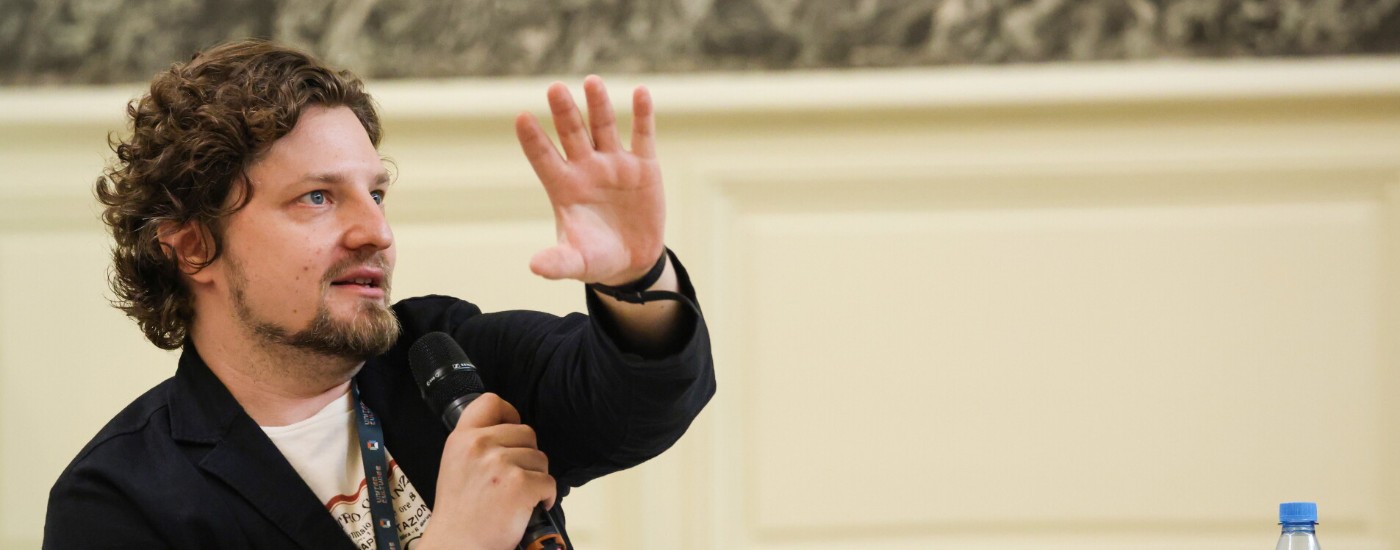At the X St. Petersburg International United Cultures Forum, a roundtable discussion was held at the State Academic Capella of St. Petersburg titled "The Media Landscape in Culture and the Arts: Creating Engaging Content." During the discussion, experts examined the media’s interaction with the cultural agenda: the opportunities presented by traditional media and social networks. However, no universal approach guaranteed to attract the audience's attention to cultural and art projects was identified.
The roundtable "The Media Landscape in Culture and the Arts: Creating Engaging Content" was part of the thematic section "Musical Culture," curated by Olga Khomova, the General Director of the State Academic Capella of St. Petersburg, and Denis Matsuev, the renowned Russian pianist and People's Artist of Russia.
Participants in the roundtable included Sergey Shumakov, Deputy General Director of VGTRK and Editor-in-Chief of the Main Editorial Office of the Russia-Kultura TV channel; Mikhail Gusman, First Deputy General Director of TASS; Kirill Smirnov, General Director and Editor-in-Chief of the newspaper Petersburg Diary; Nika Strizhak, TV host, documentary filmmaker, and author; Denis Kazakov, Head of the "Culture and Arts" group at VKontakte; and Olga Razina, Deputy General Director for Production of Thematic Programs and Special Projects of St. Petersburg TV. The discussion was moderated by Alexander Malich, TV host, producer, and Director of the Alexandrinsky Theater.
The participants could not definitively answer which methods of presenting information about events, personalities, and facts in cultural life can attract the largest audience. However, they shared their views and approaches to solving this issue in the modern media environment.
Sergey Shumakov pointed out that TV channels dedicated to culture have had a small but stable audience over the years, typically not exceeding 2% of the total. Nevertheless, according to his observation, the audience for the Russia-Kultura channel has grown in the last two years. He attributes this to people seeking a "comfortable environment" and wanting to "escape" from the troubling reality. At the same time, Shumakov noted that actualizing cultural topics in the media, such as addressing the subject of war, could likely generate a response from the audience and increase interest in television and other media content focused on culture. Moreover, he emphasized the importance of going beyond the narrow understanding of culture as merely "artistic culture." "Isn't physical culture part of the culture? What about military culture and military traditions? And forgive me for asking a somewhat wild question: isn’t agriculture also a form of culture?" Shumakov asked the audience.
In his speech, Mikhail Gusman emphasized the importance of culture in uniting people during crises and conflicts, pointing to the deliberate similarity between the Forum's name and the term "United Nations": "United Nations cannot exist without united cultures. Culture is the connecting factor, the only thing that can save them in our rapidly evolving era," Gusman said. He highlighted the need for "people of culture," as they help preserve and enrich both national and global heritage, using it as a foundation to build dialogue among nations, even in the most difficult geopolitical circumstances.
Denis Kazakov spoke about how cultural projects gain momentum through social media coverage and the opportunities these platforms provide. "Currently, VKontakte hosts over 200,000 communities related to culture and the arts. We aim to expand these areas and attract as much attention from young people as possible. VK offers various tools—vertical and horizontal content, podcasts, polls, articles, and more. Cultural institutions are already using all of this. We work with federal and regional players, private institutions, and authors to fulfill a social function and organize social projects with cultural institutions. This year, we expanded VK's grant program in the arts by launching financial grants for cultural institutions, enabling theaters, museums, concert halls, and exhibition venues to create quality content for their audiences," Kazakov shared.
Olga Razina highlighted the difference between video formats that have taken over the internet and traditional TV programs: "Only professionally created works can truly expand the audience for our museums and the significance of culture that we want to convey." She pointed to the popularity of TV programs among the residents of St. Petersburg that reflect the character of their city, noting that culture in the Northern Capital acts as a "city-forming factor," making it easy for producers and directors to find themes for creating content.
Nika Strizhak drew attention to the issue of cultural topics in media that are often given "leftover space." She noted that such content typically gets placed in the last columns of publications or in less desirable time slots for news programs, making it harder for the public to engage. She proposed a professional approach to content creation to attract the public's attention: seeking out new themes and perspectives, presenting material in an interesting and well-crafted manner, and adhering to modern technical standards for sound and visuals.
Kirill Smirnov shared the experience of "Petersburg Diary" as a news platform and as an organizer of various cultural events, such as the long-running city project "Singing Bridges." "We create different playlists depending on the event or occasion. Last weekend, we dedicated the opening of the Palace Bridge to the memorial date of the start of the Siege of Leningrad. And you know, when the voice of Galina Vishnevskaya sang on the Palace Bridge—it was Rachmaninoff’s Vocalise—the vast majority of those who came to the event (mainly visitors from other regions of the country who had come to St. Petersburg to see how the bridge is opened) suddenly fell silent and watched the bridge and the video projection displayed on it. This is also an element of immersing our guests in St. Petersburg’s culture. And it’s encouraging that the media contributes to this immersion," Smirnov said. He also spoke about documentary projects about St. Petersburg and its residents, many of which have tens of thousands of views thanks to collaboration with the VKontakte social network and the revival of traditional football matches featuring teams of journalists, theater actors, and local deputies.






